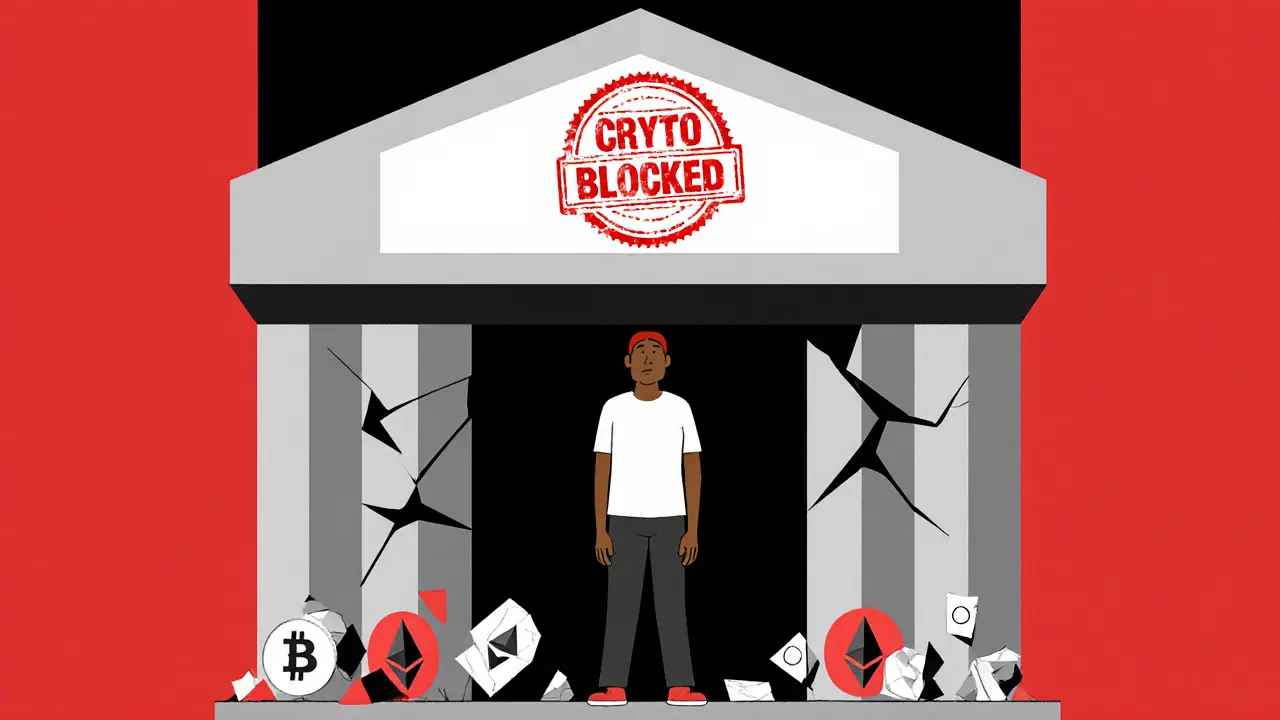Crypto Banking Restrictions: Why Governments Block Crypto and What It Means for You
When your bank suddenly blocks you from buying crypto, it’s not a glitch—it’s crypto banking restrictions, policies enforced by financial institutions or governments to limit or ban cryptocurrency transactions. Also known as financial sector crypto prohibition, these rules are popping up everywhere, from Qatar to Afghanistan, and they’re changing how people use money. This isn’t about stopping innovation. It’s about control. Banks and regulators fear losing power over money flows, tax collection, and economic stability. When a country bans crypto trading like Qatar did, it doesn’t mean crypto disappears—it just goes underground or gets replaced by tokenized real estate and bonds that the state approves.
These restrictions don’t just hit traders. They hit families in Nigeria who rely on crypto to send money home, Afghans using Bitcoin to buy food under a Taliban ban, and everyday users in Pakistan trying to get a legal exchange license. The crypto exchange shutdown, when platforms like XeggeX or GoodExchange vanish overnight after regulatory pressure is one of the biggest risks. And when regulators crack down, like in Hong Kong with the JPEX scandal, they don’t just shut down fraud—they make it harder for honest projects to survive. crypto regulation, the legal framework governments build to monitor or restrict digital assets isn’t always bad. In Nigeria, clear rules now let exchanges work with banks and pay taxes. But in places where rules are vague or weaponized, people lose access to their money without warning.
What you’ll find below isn’t just a list of articles. It’s a real-world map of how crypto banking restrictions play out—from the legal loopholes in Pakistan’s licensing process to the brutal enforcement in Afghanistan. You’ll see how Qatar allows tokenized assets but bans Bitcoin, how fake exchanges like GoodExchange thrive in regulatory gray zones, and why a ban in one country doesn’t stop crypto—it just pushes it into riskier corners. These stories aren’t theoretical. They’re happening right now, to real people. And if you’re using crypto, you need to know how these restrictions could hit you next.
Banking Access for Crypto Traders by Country: Where It’s Easy vs. Blocked in 2025
In 2025, banking access for crypto traders varies wildly by country. Some nations block it entirely, while others offer clear paths to legal, stable accounts. Here’s where you can bank-and where you can’t.
learn more